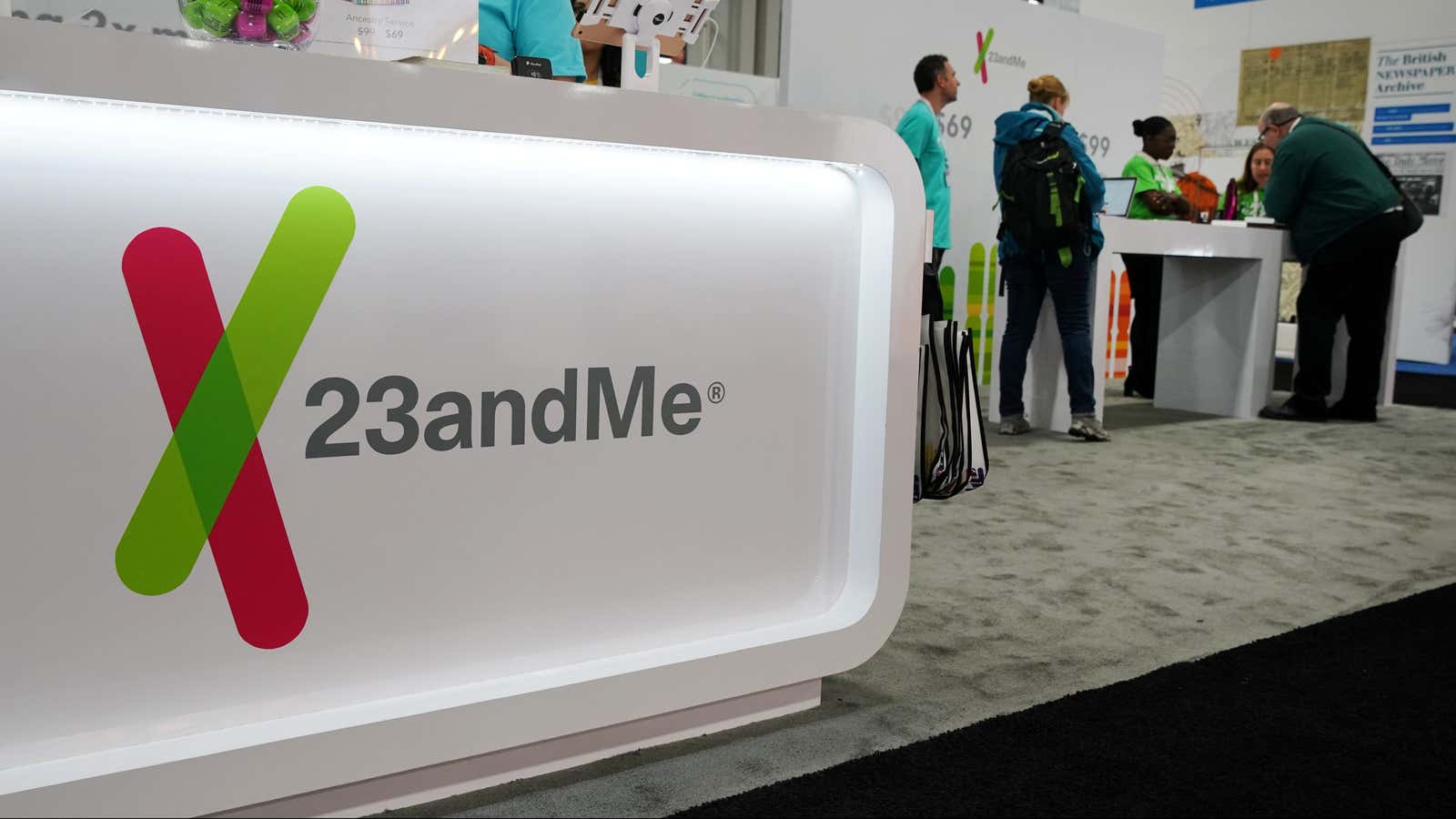Both AncestryDNA and 23andMe, two of the leading direct-to-consumer genetic testing companies, have launched promotional holiday sales, should you want to give your loved ones the gift of decoding their genes as a last-minute gift.
This isn’t the first year the firms have used sales events to pull in curious customers who think it could be a fun idea to bond over genetic testing results. But if science journalists have said it once, we’ve said it several times over: Do not get your family a direct-to-consumer genetic testing kit, and think twice before you take one you may receive.
The science is shaky
It’s true, our genes can tell us a lot about our health, and theoretically where our ancestors are from. But at the moment, the results you may get from an at-home test are hardly certain.
Studying genetics is hard: We have two sets of nearly 3 billion single basepairs that make up 25,000 genes. That’s a lot of genetic information. And while a handful of variations on these genes definitively lead to health outcomes, so far, science has uncovered that most variants are risk factors for other conditions—meaning the relationship is still uncertain.
Yesterday the Wall Street Journal reported that a mutation that was once considered likely cancer-causing actually has “uncertain” significance. That means it’s much harder for healthcare providers to advise people on whether they should take preventative action if they have this particular mutation.
Direct-to-consumer genetic tests are a highly watered-down version of what you can get from an actual healthcare provider. Currently, the US Food and Drug Administration doesn’t allow 23andMe to sell any tests that could definitively diagnose a condition to customers without the oversight of a clinician. AncestryDNA recently launched a health testing service that requires customers to work with a physician (albeit indirectly). Even so, the tests they offer only look at a handful of mutations on a handful of genes; they can’t give you a clear picture of your health risks overall.
And if it’s your ancestry you’re curious about, the science is equally uncertain there: These tests look for mutations you may have (again, in a handful of places across all you base pairs) and compare them to databases of mutations from people who know their heritage. This means that the results depend on databases, and they tend to skew European; in other words, people of color are less likely to get accurate results. Although these tests are updated constantly as companies gather new data, heritage results could only add to the confusion.
The privacy is sketchy
There’s also the glaring question of what happens to your genetic data after you give it up to tech giants to be analyzed.
As Recode recently reported, there aren’t laws that can truly prevent companies from sharing your genetic data. This means that companies can sell your data to legitimate research companies (although they do so with your consent), and they can be legally compelled to share your data with law enforcement through a subpoena.
That said, “Nearly every company reserves the right to change their privacy policies at any time,” James Hazel, a research fellow at Vanderbilt University Medical Center whose work focuses on the privacy policies of direct-to-consumer genetic tests, told Recode.
And even though many of these companies have pledged to follow privacy best practices compiled by consumer and industry advocacy groups, it’s not a legally binding promise. There are no actual enforceable penalties that could occur if companies are found to violate such pledges.
There are some answers you may not want to know
The one area where science is more certain with genetic tests is with regard to showing familial relationships. Once that information is out there, it’s impossible to unlearn—which can have super awkward repercussions, to say the least.
There have been countless stories of genetic tests revealing that some children have different biological fathers, suggesting an infidelity that could lead to divorce. Other times, genetic tests have revealed a fertility doctor’s gross misconduct.
While the benefit of these tests is that they can identify long-lost siblings—which can foster loving new relationships in the long run—there’s almost always an uncomfortable or traumatic realization about family somewhere along the way. It’s important to be prepared for such revelations.
This isn’t to say curiosity about your genes is a bad thing. They can play a major part in your healthcare or family planning, if you’re worried about passing along a disease-causing mutation. But for these legitimate concerns, we recommend talking to your doctor or a genetic counselor. It’s more expensive, but you’re paying for clarity and privacy.
If you’re looking for other ideas, Quartz recommends these privacy-conscious gifts instead.
